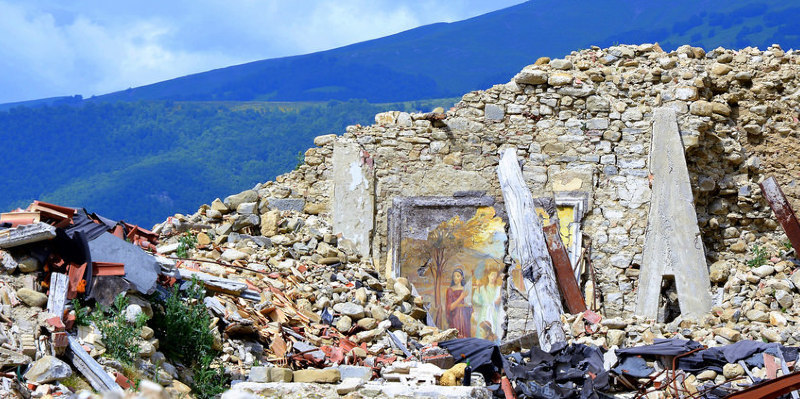Kerry Christopher had done all he could to prepare. It was September 2004, and Hurricane Ivan was barreling toward his Gulf Coast house near Milton, Florida. He’d spent two weeks boarding up his home, moving downstairs garage contents to an upper floor and packing up bric-a-brac. Just before he turned to leave, “I had a huge feeling of despair only type of wash,” he says. “It was very strange. I took a only and second kind of prayed. I had a very clear feeling in that point. The thought was, ‘Look around — that isn’t going to be here when you return. ”’
American Red Cross
Christopher’s premonition proved true. After taking cover in a nearby church while the storm raged, then making his way home through several feet of water to examine the damage, he met with a grim sight. “I had had a home on pilings,” he says. “And the only thing left was the pilings.”
Although Christopher’s religion staved off the shock — “I really felt that God had prepared me, and I was exceedingly thankful for that,” he says — he faced the lengthy and boring process of regrouping and rebuilding, such as all men and women who sustain property losses and damage in a natural catastrophe. Here are his best tips and suggestions for recovery.
• Salvage everything you can following the storm. “The water is about to harm some things rather than other stuff,” Christopher says. Scour your premises and surrounding streets for some of your belongings which are still usable or can be washed and repaired to working order. Search a radius — Christopher found some of his possessions a mile off.
• Take salvaged goods with you when you leave the website. Although Christopher’s home was in a fairly rural area, he says the area had some poststorm looting. “If you allow things sit there, someone’s going to believe it’s OK to find and pick it up,” he says.
• Be persistent in reaching out to government help. “If you’re going to try and get support from FEMA [the Federal Emergency Management Agency] with regard to shelter, you’re going to need to speak to them several times,” he says. “You’ve got to keep touching base. Request them, ‘What’s the deadline? Have I done everything?'”
• Use common sense through cleanup. “Don’t attempt to do more than you’re physically able to perform,” Christopher says. He also recommends wearing protective equipment such as thick gloves, heavy boots and long pants. And treat any cuts or scrapes immediately — you can easily get infected by bacteria and parasites in water.
Connected: 7 Initial Actions to Dealing With Flood Water Damage
• Canvass your area for spots with mobile phone coverage. Christopher and other local residents had to drive four or five miles every day to get to the only place they could find in which their phones would work. Expecting that, “Just find somebody having a landline,” he recommends.
• Realize that you’re not alone. “Ask for assistance,” Christopher says. “For many people, it’s just pride. I had that problem, where I felt I could continue to handle. Whenever the Red Cross showed up wanting to hand out food, I did not want to walk 300 yards and get it.” Finally he did, nevertheless, and also took food a quarter of a mile farther down the road to help out another household.
The hardest part of storm damage, Christopher says, is coping with long-term lack of power. “If it is possible to escape the area, escape from the area,” he says. “Apart from that, you just need to establish a whole different routine. You can not think of what you can not do — think of what you can perform. Redefine ‘normal.”
Although Christopher still possesses the lot where his house stood, he decided not to rebuild right after the hurricane because of the surge in labour and material prices. “Real estate values were also going up and up in 2005 and 2006,” he says. “I wanted to keep on the water but couldn’t afford to rebuild or buy another [home].”
Input the real estate bust of the late 2000s. Christopher bought a home on the water in 2010, a nicer and larger home much nearer to his workplace. “In hindsight, losing my old home at Hurricane Ivan was a blessing to me,” he says.
More: How to Prep for Disaster Insurance Claims | Recovering from Hurricane Sandy

